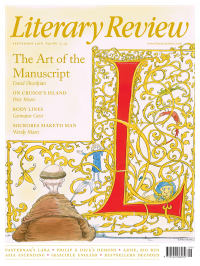Toby Lichtig
Reviewing the Situation
Judas
By Amos Oz
Chatto & Windus 274pp £18.99
Novelists from conflict zones face a difficult choice: engage with the local situation at the risk of letting political specificity subsume literary possibility, or ignore it at the cost of seeming to deny the urgent truths around you. Israeli authors are perhaps more burdened than most. To be a fiction writer in Israel is almost always to have a political voice, and often to have a newspaper column too: writers in the country are trusted far more than politicians, and it is to the country’s great authors that the public (or at least the left-wing public) turns for comment on the latest atrocity.The circumstances are even more freighted when it comes to novels in translation. Regardless of whether or not the Israeli public is bored of reading about what it euphemistically refers to as the hamatzav (‘situation’), the Israeli–Palestinian conflict is perceived to sell well in Anglophone markets.
It is therefore refreshing

Sign Up to our newsletter
Receive free articles, highlights from the archive, news, details of prizes, and much more.@Lit_Review
Follow Literary Review on Twitter
Twitter Feed
Under its longest-serving editor, Graydon Carter, Vanity Fair was that rare thing – a New York society magazine that published serious journalism.
@PeterPeteryork looks at what Carter got right.
Peter York - Deluxe Editions
Peter York: Deluxe Editions - When the Going Was Good: An Editor’s Adventures During the Last Golden Age of Magazines by Graydon Carter
literaryreview.co.uk
Henry James returned to America in 1904 with three objectives: to see his brother William, to deliver a series of lectures on Balzac, and to gather material for a pair of books about modern America.
Peter Rose follows James out west.
Peter Rose - The Restless Analyst
Peter Rose: The Restless Analyst - Henry James Comes Home: Rediscovering America in the Gilded Age by Peter Brooks...
literaryreview.co.uk
Vladimir Putin served his apprenticeship in the KGB toward the end of the Cold War, a period during which Western societies were infiltrated by so-called 'illegals'.
Piers Brendon examines how the culture of Soviet spycraft shaped his thinking.
Piers Brendon - Tinker, Tailor, Sleeper, Troll
Piers Brendon: Tinker, Tailor, Sleeper, Troll - The Illegals: Russia’s Most Audacious Spies and the Plot to Infiltrate the West by Shaun Walker
literaryreview.co.uk